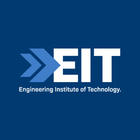- News and articles
- Find usIDP AustraliaIDP BahrainIDP BangladeshIDP CambodiaIDP CanadaIDP ChinaIDP EgyptIDP GhanaIDP Hong KongIDP IndiaIDP IndonesiaIDP IranIDP JordanIDP KenyaIDP KoreaIDP KuwaitIDP LebanonIDP MalaysiaIDP MauritiusIDP Middle EastIDP NepalIDP New ZealandIDP NigeriaIDP OmanIDP PakistanIDP PhilippinesIDP Saudi ArabiaIDP SingaporeIDP Sri LankaIDP Taiwan, ChinaIDP ThailandIDP TurkeyIDP UAEIDP VietnamIDP Corporate
- Social
- 한국어
- Where we operate
- Courses
- Scholarships
- IELTS
- About IDP
- Student Essentials
- Student Essentials
- Education loan
- 유학생 송금서비스
- 유학생 건강보험
- 유학생 은행계좌
- 유학생 숙소안내
- 유학생 심카드
- 유학생 가디언쉽
- Forex cards
- News and articles
- Find us
- Find us
- Find nearest IDP offices
- IDP Australia
- IDP Bahrain
- IDP Bangladesh
- IDP Cambodia
- IDP Canada
- IDP China
- IDP Egypt
- IDP Ghana
- IDP Hong Kong
- IDP India
- IDP Indonesia
- IDP Iran
- IDP Jordan
- IDP Kenya
- IDP Korea
- IDP Kuwait
- IDP Lebanon
- IDP Malaysia
- IDP Mauritius
- IDP Middle East
- IDP Nepal
- IDP New Zealand
- IDP Nigeria
- IDP Oman
- IDP Pakistan
- IDP Philippines
- IDP Saudi Arabia
- IDP Singapore
- IDP Sri Lanka
- IDP Taiwan, China
- IDP Thailand
- IDP Turkey
- IDP UAE
- IDP Vietnam
- IDP Corporate
- Social
- 언어 변경
- IDP Education /
- 컬리지와 종합대학 /
- Australia /
- Engineering Institute Of Te... /
- Professional Certificate of...

Professional Certificate of Competency in Smart Grids (Online)
At ENGINEERING INSTITUTE OF TECHNOLOGY

Location
Australia
자격
Short Course / Professional Development
금액
AUD1581
(2025)
지속 기간
3 Month(s)
다음 입학시기
11 March 2025
COURSE_INFO
A smart grid is an electricity network that uses digital and other advanced technologies in an integrated fashion to be able to monitor and intelligently and securely manage the transport of electricity. The course covers smart grid infrastructure and the associated technologies such as smart metering, energy storage, SCADA, demand side management, artificial intelligence and cyber security. For a sustainable energy future, it is essential that engineers understand the role of smart grids and collaborate with each other to achieve the smart grid values. Due to the nature of the smart grid concept, the course is suitable for all engineers including electrical and electronic engineers, data communication engineers and industrial automation engineers.What you will learngain:Insight into smart grid infrastructure;The role of power electronics and energy storage in smart grids;Knowledge of advanced technologies and concepts such as advanced metering, demand side response, electric vehicles and the role of data communication;Understanding of protection and cyber security fundamentals.Course BenefitsYou may be eligible to claim CPD points through your local engineering association.Receive a Certificate of Completion from EIT.Learn from well-known faculty and industry experts from around the globe.Flexibility of attending anytime from anywhere, even when you are working full-time.Interact with industry experts during the webinars and get the latest updatesannouncements on the subject.Experience a global learning with students from various backgrounds and experience which is a great networking opportunity.Study the smart grid infrastructure and the associated technologies such as smart metering, energy storage, SCADA, demand side management, artificial intelligence, and cyber security etc.Gain in-depth understanding of the role of smart grids and its collaboration to achieve the smart grid values.Learn fundamentals of smart grid infrastructure and the role of power electronics and energy storage in smart grids.Gain knowledge of advanced technologies and concepts such as advanced metering, demand side response, electric vehicles, and the role of data communication.Understand the fundamentals of protection and cyber security.Course DetailsThe course introduces engineers to the principles of smart grids in power system application under various network conditions. The content includes smart electricity network and the role of communication in smart grid deployment, which will develop engineers’ understanding of the overall smart grid components.The course will discuss the basic components of smart grid systems and will look into topics of smart grid regulation and market economics, communication technologies and smart transmissiondistribution grids. The application of various power electronic devices and the management of energy storage, electric vehicles, demand side management and AMI will also be covered. The computation tools for smart grid design, adaptive protection, Interoperability standards and software infrastructure will be highlighted. Furthermore, students will gain a fundamental understanding of big data and cyber security in smart grids.After covering the necessary theory, the course will introduce practical studies involving the modelling and simulation of various system conditions using appropriate software tools. Students will also gain skills in interpreting simulation results.
- 장학금 모든 장학금 보기
- 인턴쉽
신청 마감일
지원 마감일이 없습니다. IDP 유학전문 카운셀러에게 문의하기 더 자세한 정보를 위해
Further information
If you aren't eligible for the above entry requirements, you might ant to explore pathway options at Engineering Institute Of Technology. If you want to find out more, speak to our counsellors.
학생들이 생각하는 것
해당 기관에 대한 리뷰가 아직 없습니다.
추천
- 학사
- Australia
- 펀딩 타입: Fee waiver/discount
- 학사
- Australia
- 펀딩 타입: Fee waiver/discount
- 학사
- Australia
- DEADLINE: 11 Feb 2025
- 펀딩 타입: Fee waiver/discount
- 학사
- Australia
- 펀딩 타입: Fee waiver/discount
- 학사
- Australia
- 펀딩 타입: Fee waiver/discount
- 학사
- Australia
- 펀딩 타입: Fee waiver/discount
Your action plan
절차 1
Shortlist your courses
Choose the best three courses you’re most likely to pursue.
절차 2
Check your eligibility
Get an instant in-principle offer for courses with the IDP FastLane tag.
절차 3
Apply through IDP Live
Fill out the form once and use it to apply to multiple courses.
IDP의 Fastlane은 어떻게 진행되나요?
FastLane의 사전입학심사 서비스를 이용하면 몇 분 안에 합격 가능여부를 알 수 있습니다!
학교와 전공 선택하기
지원을 위한 계정 만들기
사전심사서비스를 위한 지원서 제출
선택하신 학교에서 몇 분 내로 사전심사 결과를 보내드립니다
전문 카운셀러와 함께 지원준비하기




